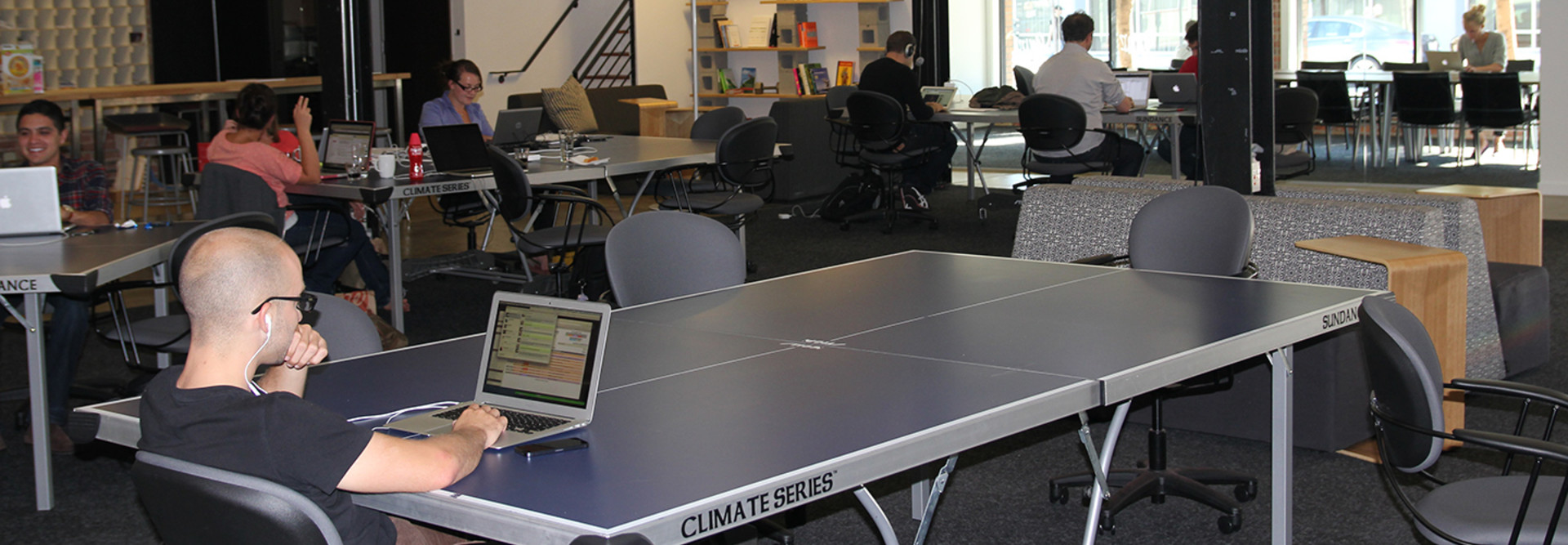Your Small Business May Not Need a Physical Office to Thrive
The office culture of yesteryear, in which workers came into an office at 9 a.m., sat down at a desk, worked all day and left around 5 p.m., is still around, but is rapidly fading.
In its place, users are becoming more mobile as technology enables them to do work securely, from almost anywhere. That gives rise to a very clear question: Does a small business even need a physical office anymore?
Software company Buffer decided in 2015 to eliminate its physical office and embrace its ethos as a fully distributed team around the world. According to the company, it was paying more for rent on its office space in San Francisco each month than it spent on health insurance, advertising or marketing.
Obviously, not every company can or even should go quite so far, but many would benefit from the Workspace as a Service model, a type of virtual desktop that gives users access to their business apps and data from anywhere at any time. Using collaboration technologies running in the cloud and managed services that make the physical location less important, small businesses can reduce or eliminate their physical office space and still be productive, growing organizations.
SIGN UP: Get more news from the BizTech newsletter in your inbox every two weeks!
Employees Embrace New Ways of Doing Work
Companies can afford to do away with physical offices because the way employees view and conduct work is rapidly changing. In a 2017 CareerBuilder poll of 3,696 full-time U.S. employees, 61 percent of the respondents said they think the traditional 9-to-5 work schedule is outdated. That’s a belief that the survey found is held more so by those ages 45-54 (68 percent), compared to those 18-24 (45 percent), 25-34 (59 percent), 35-44 (61 percent) or over 55 (64 percent).
Meanwhile, a Gallup poll released last year found that, as of 2016, 43 percent of employed Americans said they spent at least some time working remotely, a figure that jumps to 57 percent for those working in computers and information systems, reports the New York Times.
Based on the price per square foot of office space in many major cities, businesses would likely pay thousands of dollars per month just for rent (or tens of thousands depending on the number of employees and their space requirements). The rise of coworking spaces like WeWork also makes a physical location less important than before. Doing away with a physical office space can help free up needed budget space for technology investments, product development and other business expenses.
How to Stay Productive Without an Office
In addition to the changing nature of the office, modern, advanced technology makes it easier than ever to work remotely and be productive. Broadband connections are more readily available, even outside of cities. Cloud and virtualization services are abundant. Moreover, office technology is simply following consumer technology usage trends. Workers are going mobile, and can work anywhere thanks to smartphones, tablets and pervasive Wi-Fi and cellular connections for laptops.
Additionally, cloud-based collaboration technology and videoconferencing tools make it easy for far-flung workers to stay in touch, share documents and work on projects seamlessly.
Even if your employees are not physically in the same space, that should not be a barrier to be able to work productively. Tools such as Skype for Business, Microsoft Teams, Cisco Systems’ Spark and other team collaboration platforms allow users to engage in high-definition videoconferencing, group chats and document collaboration with ease.
Managed Services Can Help with IT Support
You may be wondering how you can provide effective IT support to a remote team of users. Thankfully, there are managed services that can help ensure your employees’ needs are met.
For example, CDW Premium Support, which is specifically designed for small and medium businesses, makes it easy for your employees to contact U.S. tech experts in seconds and get their IT issues resolved.
The service can help users install and set up hardware and software. It also allows users to troubleshoot a slow computer and remove viruses, offers email setup, and provides assistance and education on popular business software like Office 365.
Some small businesses will stick with a physical office. However, forgoing office space can be a significant cost savings opportunity. And technology and managed services mean that you don’t have to sacrifice productivity if you do decide to go that route.
This article is part of BizTech's AgilITy blog series. Please join the discussion on Twitter by using the #SmallBizIT hashtag.










